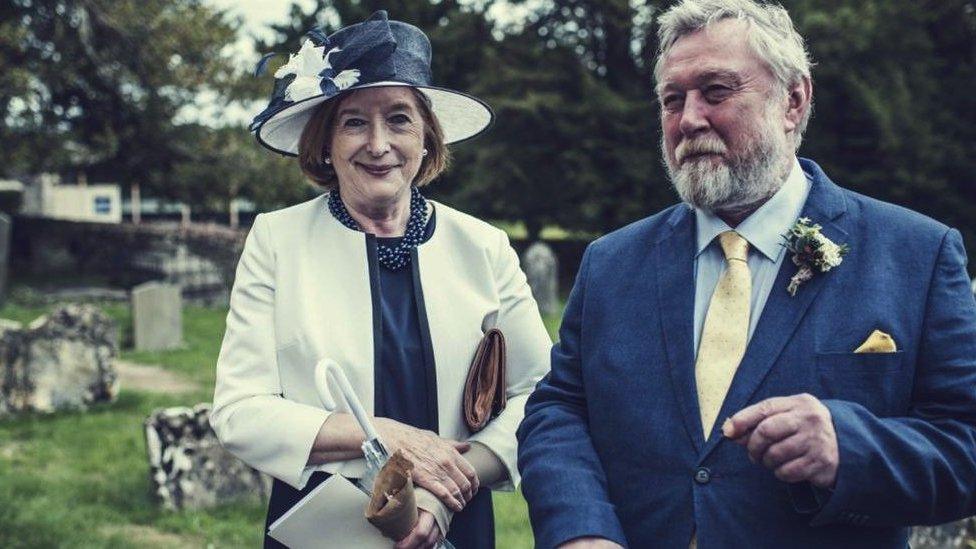Wotton Lawn: Fears policing changes will harm psychiatric patients
- Published
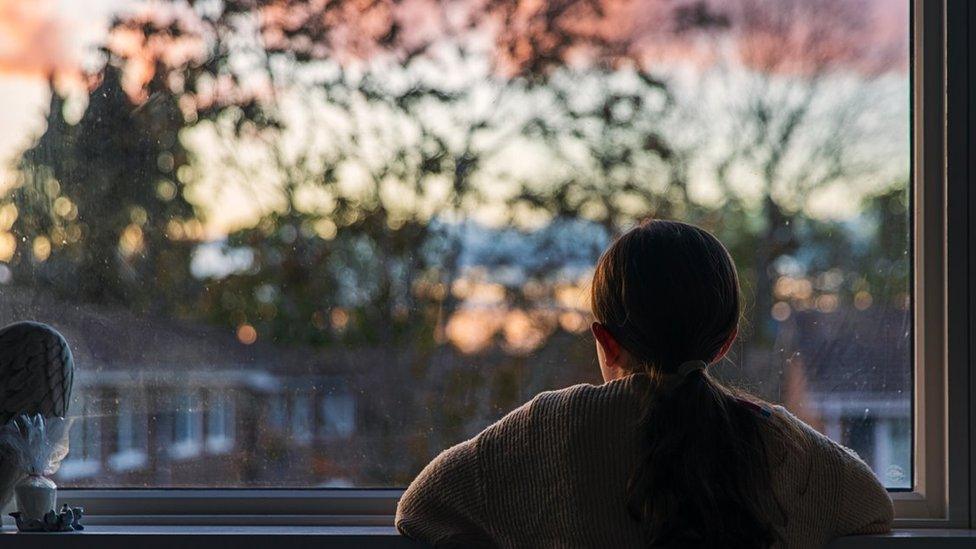
One former patient said "there has got to be a better way" of saving police resources (file photo)
A former patient at Wotton Lawn psychiatric hospital in Gloucester said she fears "people are going to die" after the local police force announced that in future its officers will no longer routinely attend mental health-related calls.
A number of people have told the BBC the police are the only reason they or a loved-one is still alive after a stay at the unit because it is so easy for patients to abscond.
So will plans by police to cut their response to mental health calls put psychiatric patients in Gloucestershire at risk?
Jessica, not her real name, estimates she was able to escape the unit on at least 60 occasions during a 16-month stint at the unit.
"Wotton Lawn kind of prides itself on being one of the only acute units without locked doors," she said.
"But it is that fact that has caused most of the issues they have had."
When Jessica absconds she often tries to hurt herself, meaning police and other emergency services have to find her.
On one occasion, three police cars and two fire engines spent eight or nine hours trying to get her down from a tree.
The 28-year-old said she has "a lot of concerns" about Gloucestershire Police's plans, and warned Wotton Lawn relies "very heavily on the police".
If you are affected by any of the issues in this article you can find details of organisations that can help via the BBC Action Line.
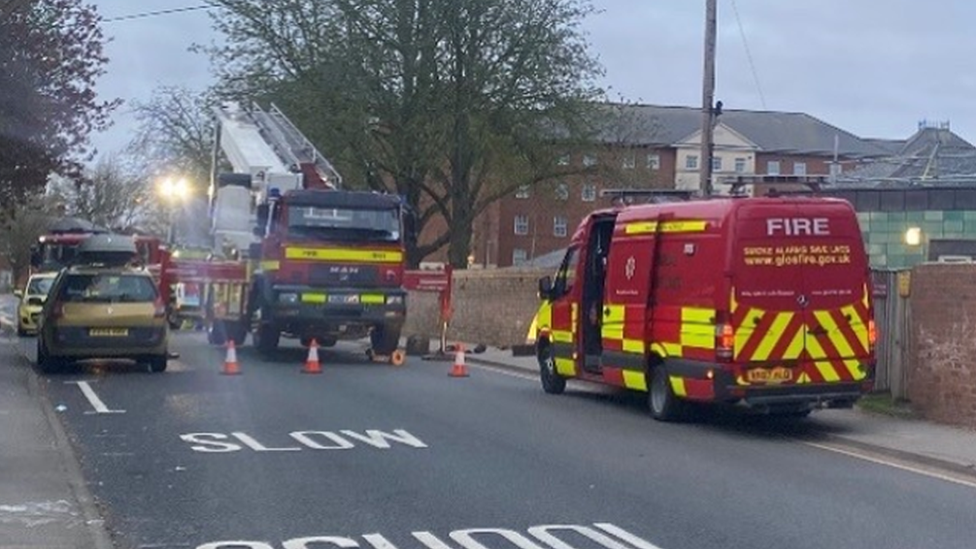
Jessica frequently absconded, meaning police and other emergency services had to find her
Jessica's mum said she often resorted to calling the force when her daughter went missing, because the hospital would not send staff out to look for her.
Referring to the tree incident, she said: "Had (the hospital) actually sent someone who is fully trained, who would have been able to talk her down, we would have probably done that four or five hours earlier.
"I think we need to look at the bigger picture of why the police feel they are having to do this."
Under the Right Care, Right Person scheme,, external developed by Humberside Police, officers from Gloucestershire Police will no longer routinely attend requests such as welfare checks or find missing people.
Police will only be deployed when there is a risk to life or of serious harm.
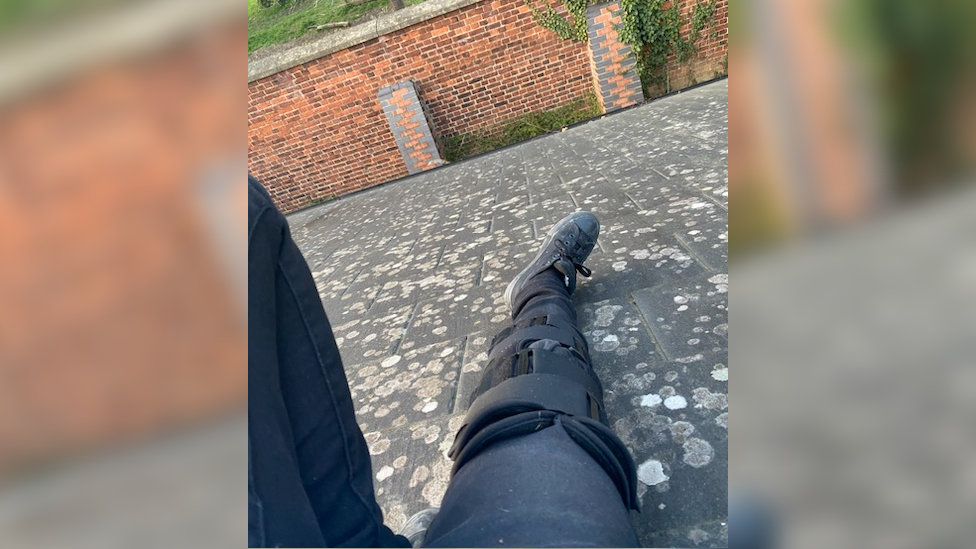
One patient said they would often access "high points" when they absconded from Wotton Lawn
But another former Wotton Lawn patient said seemingly trivial mental health calls, such as missing persons cases, could develop into life-threatening situations if not dealt with quickly.
Police resources, such as drones or dogs, can swiftly track down people who may have seriously harmed themselves, giving emergency services vital extra time to save their lives.
"The bottom line of it all is that people are going to die, that is going to be as a result of what (Gloucestershire Police) are doing," she said.
"There has got to be a better way of them trying to save their resources."
Gloucestershire Police said the purpose of its new approach is to ensure individuals get the right support and service by the right professional.
"We are not always the correct service to attend, and the impact of having uniform officers in attendance can sometimes have a detrimental effect on an individual, creating unintentional consequences, and may at times heighten distress," a spokesman for the force added.
Humberside Police has recorded the highest arrest and crime detection rates in the country since adopting Right Care, Right Person.
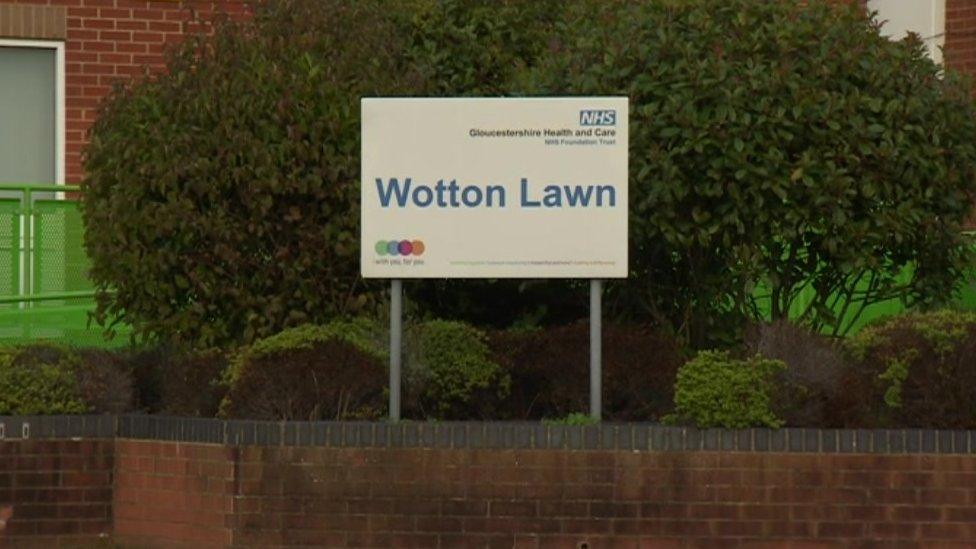
Nearly 100 people were reported missing from Wotton Lawn over a two-year period
When you look at the figures from just one psychiatric hospital, the pressure mental health crises place on Gloucestershire Police is clear.
Requests under the Freedom of Information Act by the BBC revealed Gloucestershire Police received 97 reports of patients missing from Wotton Lawn over two years, from 1 January 2021 and 31 December 2022.
Over the same period, it received 1,441 calls for service at the unit, of which 409 incidents were attended.
On average, officers were deployed to the hospital 17 times per month.
'It's the police's problem'
Some of those who came forward said that their relative has been discharged from Wotton Lawn while still very unwell, meaning it is currently left to the police to respond to their ongoing mental health crises.
The mother of one man, who suffered life-changing injuries when he attempted to take his own life within an hour of being discharged from the unit, said she has "no idea" who to turn to for help.
The woman, who did not wish to be named, said: "At the moment if they just discharge someone who is obviously unwell, which (Wotton Lawn) seem to do regularly, they (staff) say 'it's the police's problem now'.
"If (the trust) were responsible for what happened outside those walls, perhaps something would change."
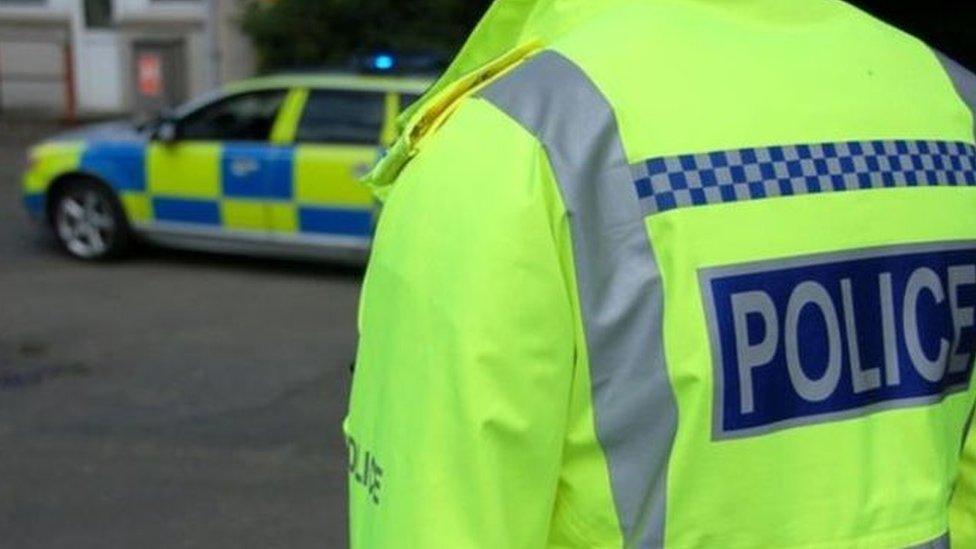
Gloucestershire Police deployed to the hospital an average of 17 times per month over a two-year period
She is sympathetic to the police, adding: "It is as if the police have finally had enough - I am kind of on their side."
Other families who contacted the BBC said an over-reliance on agency staff means the unit struggles to keep track of which patients have permission to leave and which do not.
Mike's 22-year-old son has been sectioned six times at the hospital since he turned 18.
'Passing the buck'
Despite this, on each occasion he was allowed unescorted leave, meaning Mike and his wife were compelled to call the police to find him.
"To be honest I actually sympathise with the police. I've had quite a few experiences when I've had to call police because Wotton Lawn just pass the buck to them," he said.
He added: "There is a lack of engagement or communication that it just makes it ridiculously impossible for the police to do what we are expecting them to do."

Wotton Lawn said it is doing all it can to create a therapeutic environment
Wotton Lawn said it is not always helpful for psychiatric patients to be kept under lock and key, adding that it is doing all it can to create a therapeutic environment while also keeping patients safe.
A spokesperson for Gloucestershire Health and Care NHS Foundation Trust, which runs the hospital, said: "There is a careful balance to be managed in order to enable patients to gain some independence, and there is also evidence that safety in hospitals can become worse if we are too strict in our security arrangements."
Although those running Wotton Lawn say they are committed to allowing patients a degree of independence, the trust said it is in the process of installing a new system to regulate access to the unit.
A spokesperson said: "We, and all mental health trusts, constantly review our policies and procedures based on the latest evidence and best practice.
"As such, we will soon be introducing a new system that will enable people who have clear permission to be able to leave the hospital to use their own fob access.
"We will also be changing our procedures in reception, to reduce the small number of people that leave without permission."
'All of our problems'
They added both patients and carers have been involved in the process of designing new security systems "to ensure any changes are in line with what they would want".
Responding to claims staff had said discharged patients were "the police's problem now", John Trevains, the trust's director of nursing, therapies and quality, said it was not language he had heard used.
Mr Trevains said: "We work really hard to use caring and compassionate language, I wouldn't condone any such use of language.
"It is all of our problems."
The spokesperson said that following a recent recruitment drive, the number of permanent staff at the hospital has also increased, meaning it is far less reliant on agency staff.
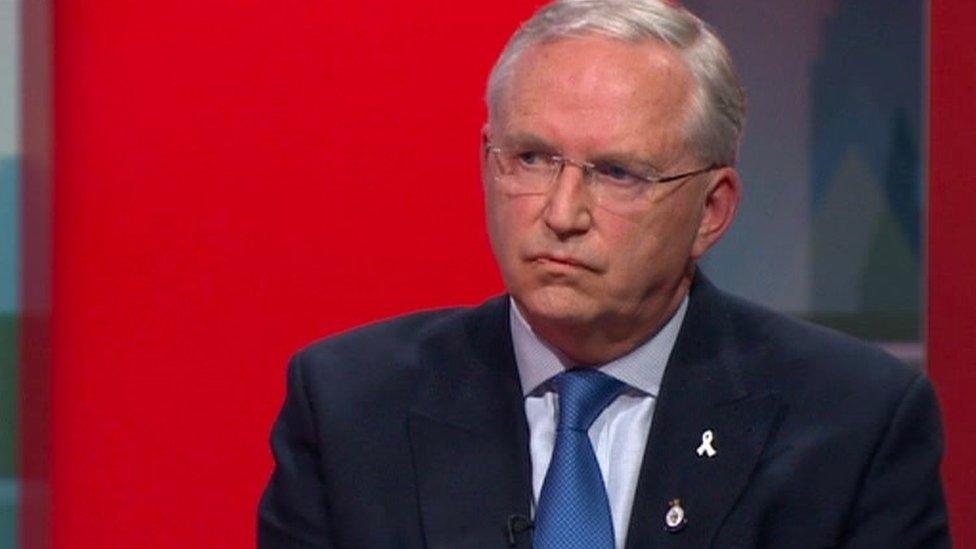
Chris Nelson said there would not be a "dramatic cut off" from what the force does now
Both national and local charities have raised concerns however, claiming there is not enough capacity for other bodies to step in and take over from the police.
Speaking in June, Andy Goddard, director of Cheltenham Samaritans, said it was important for police to work with other services to work out who will "fill the gap".
Gloucestershire Police said: "There will still be occasions, where there is a role for policing, such as searching for missing people, or responding to calls were there is an immediate risk to life.
"We are working closely with our partners to ensure we are aligning services to enable the right service to respond at the right time."
Gloucestershire's Police and Crime Commissioner (PCC), Chris Nelson, has also previously sought to reassure families there would not be a "dramatic cut off" from what it does now.
He did admit though, as a result of this move, other partners such as those in social care, mental health teams and the NHS, would need to "do more".

- Published21 June 2023

- Published29 May 2023
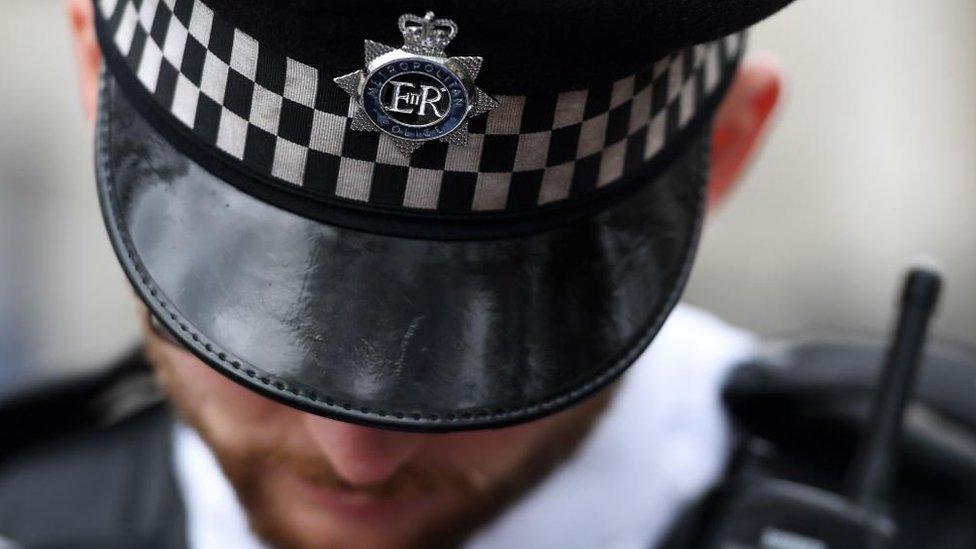
- Published24 May 2023
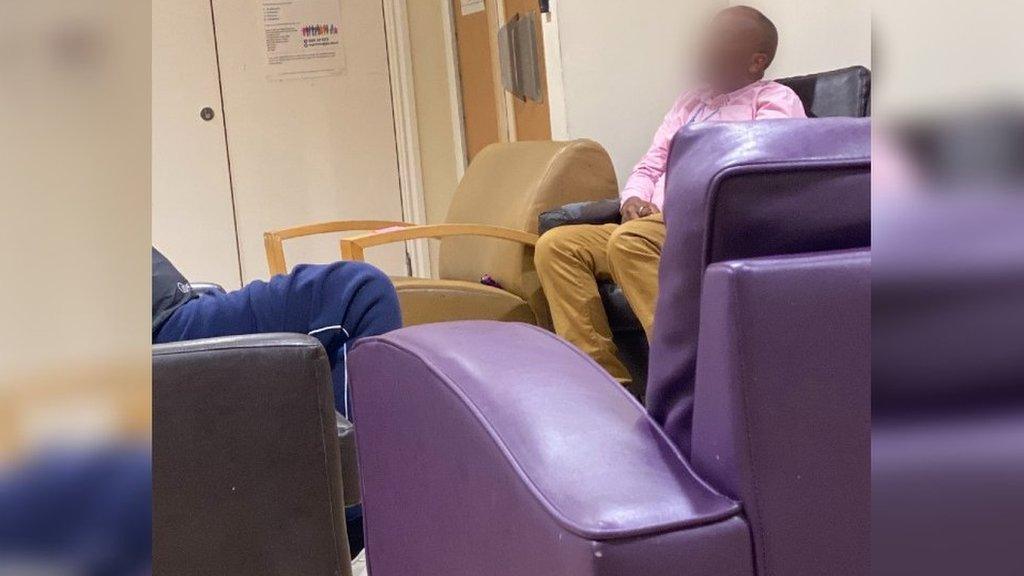
- Published23 May 2023
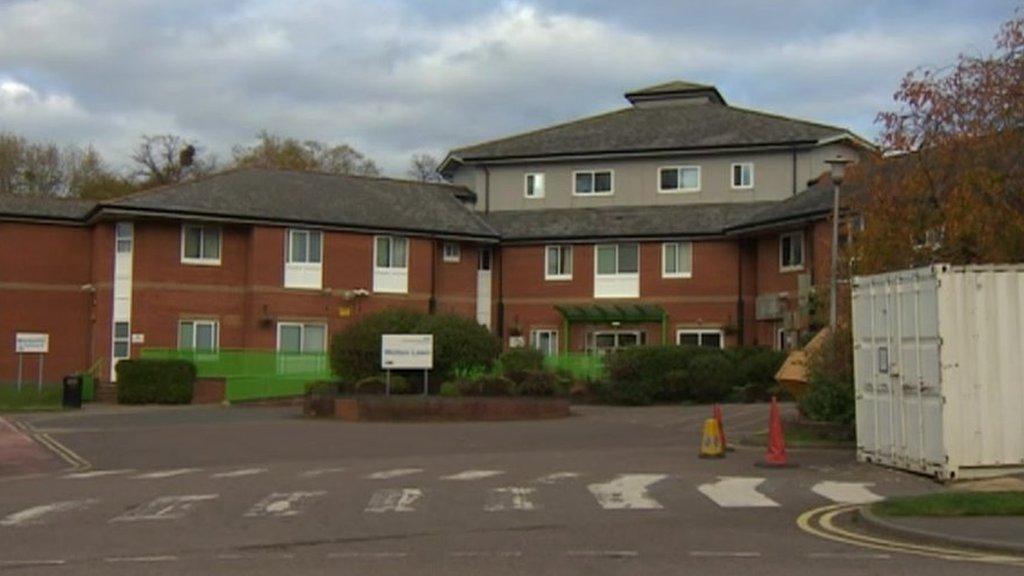
- Published15 November 2022
